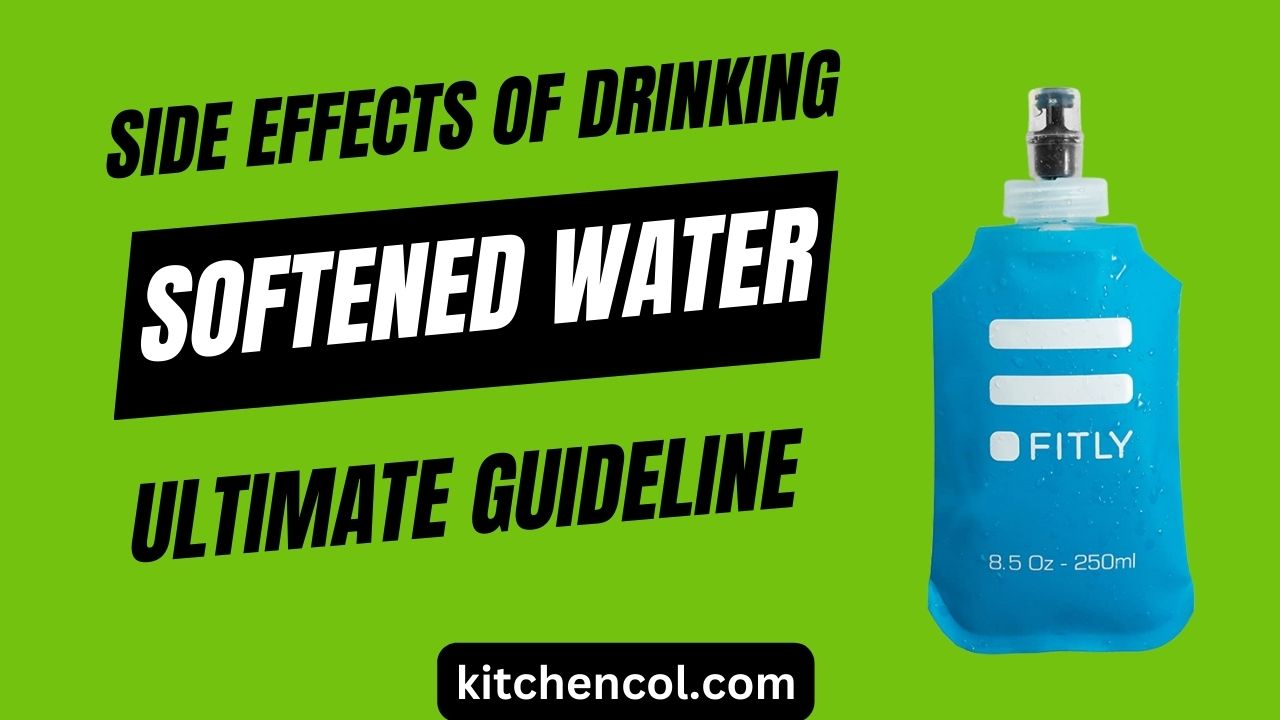If you’re someone who is interested in keeping yourself healthy, then you must know that staying hydrated is crucial for good health. And when it comes to hydration, water is the most essential drink you can have.
However, not all water is equal, and in some cases, the quality of water can negatively impact your health. One type of water that has raised concern is softened water.
In this article, we will discuss the side effects of drinking softened water and what you need to know to make informed decisions about your drinking water.
What Is Softened Water?
Before we dive into the side effects of drinking softened water, let’s first understand what softened water is. Hard water is water that contains high levels of minerals, primarily calcium, and magnesium.
When hard water is heated or left to sit, it leaves behind mineral deposits known as limescale. Softening water is a process where the minerals in hard water are replaced with sodium ions through a process called ion exchange.
This process makes the water “soft” by removing the minerals that cause limescale buildup.

Side Effects of Drinking Softened Water
Increased Sodium Intake
One of the most significant side effects of drinking softened water is that it has an increased sodium content. Since the process of softening water involves the replacement of minerals with sodium, softened water contains higher levels of sodium than regular tap water. This can be problematic for people on a low-sodium diet or those with high blood pressure.
Negative Impact on Heart Health
The increased sodium content in softened water can have negative effects on heart health. High levels of sodium can lead to increased blood pressure, which can cause damage to the arteries, leading to heart disease.
Mineral Imbalance
The process of softening water removes beneficial minerals such as calcium and magnesium, which are essential for good health. The absence of these minerals can cause a mineral imbalance in the body, leading to various health problems.
Corrosion of Pipes
Softened water is corrosive and can cause damage to the pipes and plumbing fixtures in your home. Over time, the pipes can become corroded, leading to leaks and other plumbing problems.
Environmental Impact
The process of softening water involves the use of salt, which can have a negative impact on the environment. The high levels of salt in the softened water can end up in waterways, leading to increased salinity levels, which can be harmful to aquatic life.
FAQs
Q1. Is softened water safe to drink?
A1. While softened water is safe to drink, it is not recommended for people on a low-sodium diet or those with high blood pressure.
Q2. Can I use softened water for cooking?
A2. Yes, you can use softened water for cooking. However, it’s essential to keep in mind that the increased sodium content can impact the flavor of your food.
Q3. Can soften water cause skin irritation?
A3. Yes, the increased sodium content in softened water can cause skin irritation, especially for people with sensitive skin.
Q4. Does drinking softened water increase the risk of kidney stones?
A4. The increased sodium content in softened water can contribute to the formation of kidney stones in some people.
Q5. Is softened water bad for my appliances?
A5. Softened water can be corrosive and can cause damage to your appliances over time. It’s recommended to use regular tap water for appliances such as your washing machine and dishwasher.
Also Read: Can You Drink Softened Water If Boiled-Complete Guide
Conclusion
In conclusion, drinking softened water can have various side effects on our health and daily lives.
It is important to be aware of these side effects and take necessary steps to mitigate them, such as using alternative sources of water or installing a water softener with proper maintenance.
Regular testing of the water quality can also help to ensure that the water we consume is safe and healthy for our bodies.
By understanding the potential risks and benefits of softened water, we can make informed decisions about our water consumption and ensure that we are taking care of our health in the best possible way.

My name is Manan Bukhari and I am an expert in reviewing kitchen products for years. I have a passion for testing multiple gadgets especially related to home & kitchen. I love to spend my free time in resolving issues if I face some in any of my daily use things. I have fixed multiple gadgets of my home on my own without any assistance and that thing gave me confidence to make a blog on troubleshooting of items that are for daily use to assist you folks. Even my wife praises me for having such talent. I always explore new machines on my own because this thing fascinates me.



